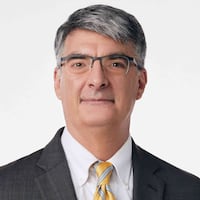AUGUSTA – It was not happenstance that Will Zalatoris played a practice round with Tiger Woods on Monday ahead of the Masters.
The two golfers have something in common.
Zalatoris is one year removed from back surgery, a microdiscectomy. Zalatoris’ injured back forced him to withdraw before the Masters last year.
Those were the worst of times.
Zalatoris is back at Augusta National this year and feeling great after the surgical procedure to relieve pain caused when a herniated disc in the spine presses on an adjacent nerve. Woods underwent the same procedure, one of many he’s had over his career.
These are the best of times.
“This is the best I’ve felt,” Zalatoris said Monday after playing the back nine with Woods. “I think the best way to put it is I kept thinking I was at 100% as I’ve come back, and each month I’ve picked up a little more speed, had a little more endurance.
“So, I think in reality, I kept thinking that I was at kind of what was going to be my 100%, and I think that’s part of the patience game. I got to the point where I feel like I can push harder in the gym and practice, but you just have to be patient. I am still only 27. I have a long career ahead of me and need to look at the long-term rather than the short-term.”
Zalatoris said he didn’t have much of a relationship with Woods. As a young golfer, he took advantage of picking Wood’s’ brain, especially as Zalatoris had success and near misses in major tournaments.
Before his injury, Zalatoris finished second at the 2021 Masters, second at the 2022 PGA Championship and tied for second at the 2022 U.S. Open.
“It’s funny because it’s not so much of the answers … or the questions that I’ve asked and him giving the answers, it’s been more the thought-provoking questions that he’s given to me has really been the stuff that’s kind of got me back to where I am now.”
Zalatoris had been battling the back issues and, specifically, two disks. Just before his first round last year on the Thursday of the Masters, Zalatoris said he was hitting irons on the practice range when he felt a jar in his back. The pain went down his legs. Enough was enough.
He had an MRI on Friday and surgery on Saturday. By Sunday, he was watching the final round on television. It was something he would do for the better part of seven months.
“I wanted it tough out but knew there was -- I had been obviously battling it for a while,” Zalatoris said. “I kind of kept things pretty under wraps in terms of even talking to my team about it. My team thought I was almost just more frustrated with my game, and in reality I was more frustrated with my body and the limitations that I had.
“It really just finally gave out. It really was the best thing that could have happened because I was very prudent by not getting surgery the first time I hurt it. At 26 years old you don’t go straight into surgery. You try to do every avenue to avoid it, and then finally once it gave out, we exhausted all options and knew we needed to do it.”
About the Author
Keep Reading
The Latest
Featured

